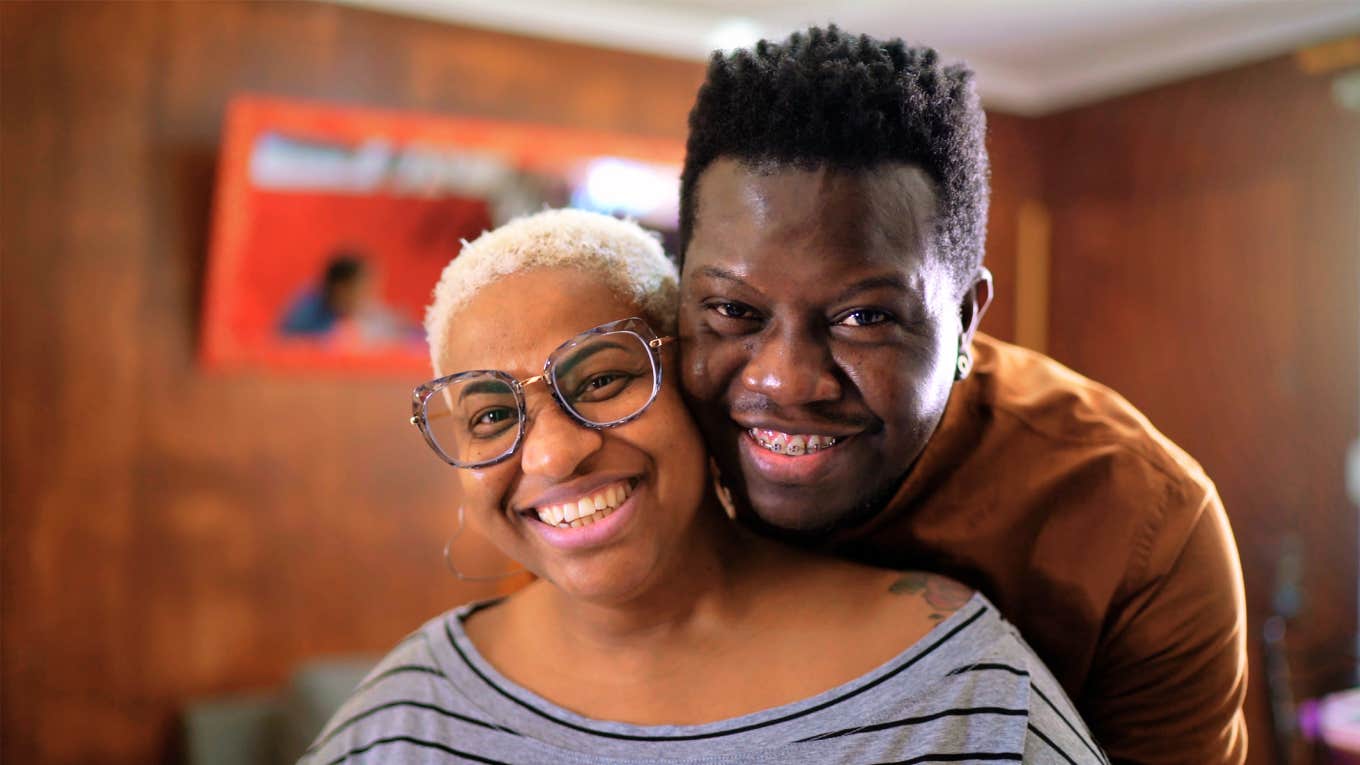5 Proven Tools Used In Real Therapy Sessions That Can Save A Dying Relationship, According To Psychologist
Techniques used to help struggling couples reconnect and rebuild trust.
 FG Trade | Canva
FG Trade | Canva Strong, loving, and healthy relationships require a lot of work. Sure, you love each other, respect each other, and want to spend time together, but there’s much to be analyzed when you’re having issues.
Being open and honest with each other and using emotions as genuine information to guide how you function together are essential tools in a relationship. Research strongly supports the idea that open and honest communication is crucial for healthy relationships as these practices foster trust, understanding, and mutual respect, essential for strong and lasting bonds.
Here are the proven therapy tools that can bring a relationship back from the brink, according to a psychologist:
1. Interrupt the cycle of negativity
 simona pilolla 2 / Shutterstock
simona pilolla 2 / Shutterstock
More often than not, couples have problems because they fall into a cycle that breeds negativity in some way. For example, a wife might come home stressed and say something snippy to her husband.
This puts him in a bad mood and makes him not want to talk about his day. The wife, in turn, feels unwanted and annoying and worries that she and her husband can’t find common ground anymore. But when we become aware of such a cycle, we can interrupt it.
For example, maybe the wife can come home and go for a 10-minute walk to process her day, and not unleash what happened at the office on her husband.
Or, maybe the husband could practice being extremely empathetic when his wife first gets home, since he has now recognized that this is a difficult transition for her, and she has a hard time dealing with the stress of her job as she tries to unwind. Identifying this cycle is half the battle to understanding your relationship problems.
2. Explore each partner’s feelings
 Mladen Mitrinovic / Shutterstock
Mladen Mitrinovic / Shutterstock
Beyond identifying negative cycles in your relationship, in order to properly mitigate and mediate the subsequent interactions, it’s important to explore each partner’s feelings related to that interaction cycle.
Now, this may sound like a cliché therapy term, “exploring your feelings,” but making assumptions about such feelings and not talking about them only feeds into the existing negative cycle you’ve been practicing that’s been causing you problems.
Research indicates that accurately perceiving a partner's thoughts and feelings is strongly correlated with higher satisfaction levels in the relationship. Couples who accurately perceive each other's emotions during disagreements tend to be more cooperative and accommodating.
Together you can then determine, as a team, what went wrong where, and how each person was feeling in each moment.
3. Understand your own wants and needs
 Miljan Zivkovic / Shutterstock
Miljan Zivkovic / Shutterstock
It’s almost impossible to have a successful relationship with another person without fully understanding yourself. Both partners involved in a relationship must understand their own wants and needs as individuals.
It’s easy to get caught up in the “we” mentality of a relationship, but the fact of the matter is that we are our own independent people at our core. We have individualized expectations, wants, and physical and emotional needs.
Understanding what works for you in this way, and then communicating these needs to your partner, is an extremely healthy practice and may assist you in better understanding each other, and therefore treating each other in a way that promotes trust and emotional bonding, which we all know are the backbones of a great relationship.
4. Be supportive
 Worawee Meepian / Shutterstock
Worawee Meepian / Shutterstock
Now this one is a little trickier depending on what your partner has identified as their personal wants and needs, but things will go more smoothly in the long run if you can accept your significant other’s emotional experience, and be supportive of them no matter what.
This may be difficult if some of their needs don’t match yours, or if fundamentally you have different goals, but finding a way to maximize both partners’ satisfaction in this way may aid your happiness as a couple.
A 2021 study explained that supportive relationships, both romantic and non-romantic, are associated with numerous benefits, including improved mental and physical health, greater happiness, and increased relationship satisfaction.
In both experience and behavior, be supportive of what your partner wants, and do your best to help them achieve it by the way you treat them day in and day out. You love and respect this person, so why not love and respect what they need to be the best version of themselves?
5. Express your feelings
 Andrii Iemelianenko / Shutterstock
Andrii Iemelianenko / Shutterstock
In order to really change the negative cycles that exist in a relationship, both partners need to learn to express their wants and needs in a way that their partner can digest, and in a way that won’t elicit any extreme emotions from their partner.
This may look different for various couples depending on their interaction styles, but this can be a lesson in learning to effectively communicate.
Be honest with each other. Express how you feel as much as possible. Don’t make assumptions. Work especially hard to listen to what your partner is trying to say.
Emotions are a critical part of our identity and personality, and they can and should be used as information to make informed decisions.
The above techniques all come from Emotionally Focused Therapy (EFT), an evidence-based treatment used to improve the quality of adult relationships. EFT focuses on exploring, understanding, and validating emotions within a relationship context.
The skills and techniques used in EFT can help the relationship function in the healthiest and most rewarding way possible for both partners.
Dr. Konstantin Lukin is a psychologist, author, speaker, and researcher who focuses on psychology, relationships, and love.

